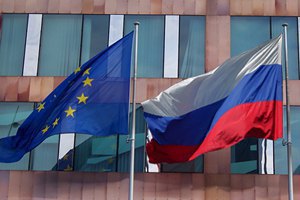On 1 July 2016, the Council of the European Union prolonged the economic sanctions targeting specific sectors of the Russian economy until 31 January 2017, the Councilsaid in a communique.
These measures were introduced on 31 July 2014 initially for one year in response to Russia's actions destabilising the situation in Ukraine. They were reinforced in September 2014. They target the financial, energy and defence sectors, and the area of dual-use goods.
On 19 March 2015, the European Council agreed to link the duration of the sanctions to the complete implementation of the Minsk agreements, which was foreseen to take place by 31 December 2015.
Since the Minsk agreements were not fully implemented by 31 December 2015, the Council extended the sanctions until 31 July 2016. Having assessed the implementation of the Minsk agreements, the Council decided to renew the sanctions for a further six months, until 31 January 2017.
The economic sanctions prolonged with the decision notably:
- limit access to EU primary and secondary capital markets for 5 major Russian majority state-owned financial institutions and their majority-owned subsidiaries established outside of the EU, as well as three major Russian energy and three defence companies;
- impose an export and import ban on trade in arms;
- establish an export ban for dual-use goods for military use or military end users in Russia;
- curtail Russian access to certain sensitive technologies and services that can be used for oil production and exploration.
In addition to these economic sanctions, several EU measures are in place in response to the crisis in Ukraine including:
- targeted individual restrictive measures, namely a visa ban and an asset freeze, currently against 146 people and 37 entities until 15 September 2016;
- restrictive measures in response to the illegal annexation of Crimea and Sevastopol, limited to the territory of Crimea and Sevastopol, currently in place until 23 June 2017.
The decision was adopted by written procedure and as it is the rule for all decisions on prolongation of restrictive measures, unanimously.








